Announcements
- CRA Taulbee Survey in Progress, Salary Deadline November 17
- Coming Soon: CRA and ACM Enrollments Survey
- Apply Now for CRA-W Grad Cohort 2016
- Nominations Open for 2016 CRA Awards
- Nominees Sought for CRA Board
- Accomplishments

Archive of articles published in the 2015 issue.
This article examines trends for women and men in three financial aspects of doctoral study: the primary source of doctoral funding, the source of postdoctoral funding for those choosing a postdoctorate, and starting salaries for new Ph.D.s.
These analyses are part of a larger project examining trends in the representation of women in computing from 1990-2013. As part of that project, we licensed data from the National Science Foundation’s Survey of Earned Doctorates (SED). The SED is sent each fall to every individual who received a research doctorate from an accredited U.S. institution in the previous academic year. It asks about the respondent’s educational background, demographics, and postgraduation plans. In 2013, 92 percent of doctoral recipients completed the survey. We included data on SED respondents whose field of doctoral program was in the disciplines of (SED codes are listed in the parenthesis): computer science (400), computer engineering (321), information science & systems (410), robotics (415), and computer & information systems, other (419).
We previously used SED data to analyze the baccalaureate origins of women doctoral graduates (Bizot and Zweben, 2015) and plan a forthcoming article on time to degree.
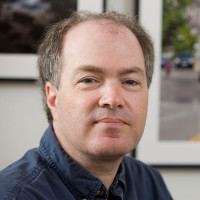
Scott Jordan is the Chief Technologist of the Federal Communications Commission (FCC). While at the FCC, Jordan is on leave for governmental service from the University of California, Irvine, where he is a professor of computer science. His research has focused on Internet quality of service issues, including traffic management and resource allocation, in both wired and wireless networks. His current research interests are Internet policy issues, including net neutrality, data caps, and device attachment. In 2006, he served as an IEEE Congressional Fellow, working in the United States Senate on communications policy issues.
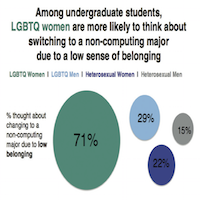
CERP surveyed 101 undergraduate students majoring in a computing field who indicated that they had seriously considered changing to a non-computing major. Of those students, 7% identified as LGBTQ women, 7% identified as LGBTQ men, 27% identified as heterosexual women, and 59% identified as heterosexual men. When asked to indicate the reason they thought about changing their major. LGBTQ women were significantly more likely than their male LGBTQ and heterosexual peers to have considered leaving their major due to a low sense of belonging in computing, p < .05. These findings suggest the field of computing should take significant efforts to enhance LGBTQ women’s sense of belonging in computing.
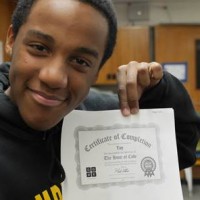
Code.org began almost three years ago with a mission to change the face of computer science (CS) education. In 2013, we started with a short film that went viral. Since then we’ve been building a start-up nonprofit organization working to give every student in every school the opportunity to learn foundational computer science skills. We’ve seen phenomenal results and impact from this mission.
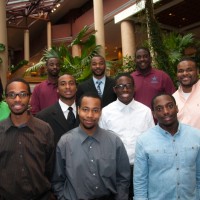
Part of CRA’s mission is to facilitate the development of strong, diverse talent in the field. CRA takes action to help increase and strengthen the computing workforce through programs such as the Collaborative Research Experiences for Undergraduates (CREU) and Distributed Research Experiences for Undergraduates (DREU) programs.
The 2014 Taulbee Survey reports 152 African-American students enrolled in computer science Ph.D. programs–only 1.3 percent of the total students enrolled. Despite these low numbers, there is not a shortage of success stories. Morehouse College, a historically black institution, produces 13 percent of the male African-American Ph.D. students. I recently caught up with Kinnis Gosha, assistant professor of computer science and director of the Culturally Relevant Computing Lab (CRCL) at Morehouse College. Gosha has a Ph.D. in Human-Centered Computing and started the CRCL in 2011. The lab investigates research problems centered on creating innovative computing technologies to solve cultural problems and issues.
The Computing Community Consortium’s (CCC’s) Computing in the Physical World task force has just released a community white paper on Systems Computing Challenges in the Internet of Things. The task force, led by CCC Council Member Ben Zorn from Microsoft Research, is looking at the core research challenges presented by the Internet of Things (IoT). This white paper highlights these challenges and provides recommendations that will help address inadequacies in existing systems, practices, tools, and policies.
On October 20, as part of the rollout of the National Strategic Computing Initiative, the White House announced its nanotechnology-inspired Grand Challenge to develop transformational computing capabilities by combining innovations in multiple scientific disciplines. The grand challenge’s goal:
Create a new type of computer that can proactively interpret and learn from data, solve unfamiliar problems using what it has learned, and operate with the energy efficiency of the human brain.

Social computing encompasses the mechanisms through which people interact with computational systems like crowdsourcing markets, ranking and recommendation systems, online prediction markets, citizen science projects, and collaboratively edited wikis. Humans are active participants in these systems, making choices that determine the systems’ input and, therefore, its output. The output of these systems can be viewed as a joint computation between humans and machines, and can be richer than what either could produce alone.
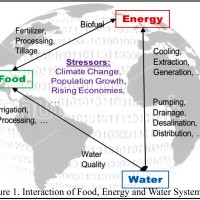
The following is a special contribution to this blog from the organizing committee of the National Science Foundation (NSF) workshop to Identify Interdisciplinary Data Science Approaches and Challenges to Enhance Understanding of Interactions of Food Systems with Energy and Water Systems — held during October 5-6, 2015 at the National Institute of Food and Agriculture (NIFA) Waterfront Centre in Washington, D.C. This post summarizes some of the highlights of the workshop.
CRA’s Center for Evaluating the Research Pipeline (CERP) will be working with Linda Sax, Professor of Education at UCLA, and a team of graduate students, on the research component of the Building Recruiting and Inclusion for Diversity (BRAID) initiative. The BRAID initiative was established in 2014 by Harvey Mudd College and the Anita Borg Institute for Women and Technology, and currently involves 15 computing departments across the U.S. that are committed to recruiting and retaining women as well as underrepresented men in computing majors. To that end, BRAID departments implement changes to their introductory computer science courses, and pathways into the major, as well as improve departmental climate, and promote outreach efforts for students.
This website uses cookies so that we can provide you with the best user experience possible. Cookie information is stored in your browser and performs functions such as recognising you when you return to our website and helping our team to understand which sections of the website you find most interesting and useful. You can adjust all of your cookie settings.
